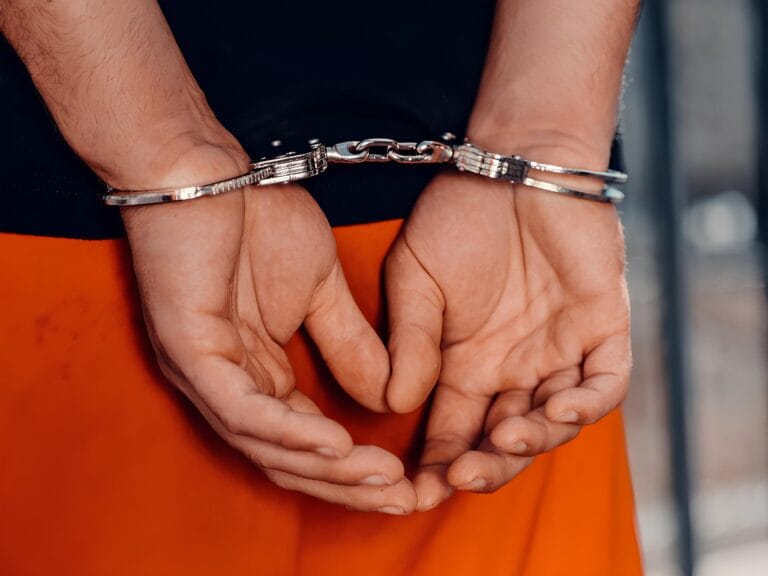
''Handling Unlawful Arrests: Steps to Take When Police Violate Your Rights"
**Protecting Your Rights: Steps to Take When Facing Unlawful Arrests Under the Bharatiya Nyaya Suraksha Sanhita, 2023**
In a democratic country like India, the rule of law is supreme, and the rights of individuals are protected by elaborate legal structures. However, unlawful arrests by law enforcement agencies can sometimes take place, violating personal liberties. The Bharatiya Nyaya Suraksha Sanhita, 2023, is a critical legal document in the protection of citizens against such offenses. Understanding what the BNSS provides and how to respond appropriately in case of an unlawful arrest is something that every citizen needs to know.
**Understanding Unlawful Arrests
For any queries or to publish an article or post or advertisement on our platform, do call at +91 6377460764 or email us at contact@legalmaestros.com.
Unlawful arrest: This is an arrest made against a person without due process of law. This includes, inter alia, arrests made under a non-cognizable offenses without a valid warrant, arrests not coupled with informing him about the ground for arrest or arrests not coupled with the procedures contemplated by law. Such acts violated the Fundamental Rights of the Indian Constitution, especially as available in Article 21 namely, the right to life and personal liberty.
Provisions under the BNSS, 2023
1. **Mandatory Forensic Investigation**: For offenses punishable with seven years of imprisonment or more, the BNSS mandates forensic investigations. Forensic experts are required to visit crime scenes to collect evidence and document the process. This provision aims to enhance the integrity of investigations and prevent arbitrary arrests. ([PRS Legislative Research](https://prsindia.org/billtrack/the-bharatiya-nagarik-suraksha-sanhita-2023?utm_source=chatgpt.com))
2. **Display of Arrest Information**: The BNSS mandates that every police station and district designate an officer, not below the rank of Assistant Sub-Inspector, to display information about all arrested individuals prominently. This measure safeguards the rights of the accused and mitigates instances of custodial violence and illegal detention. ([Press Information Bureau](https://pib.gov.in/Pressreleaseshare.aspx?PRID=2082757&utm_source=chatgpt.com))
**Steps to Take When Facing an Unlawful Arrest**
If you feel that you are being illegitimately arrested, then you should do the following things:
1. **Be Calm and Cooperate**: You might feel upset, but you should refrain from that. This will prevent further arrest charges for resistance against an arrest. Politely ask as to why you are being arrested and question for a warrant if there is one.
2. **Record Incident**: If allowed, record names of arresting officers, badge number, and details of time and place of arrest; this information would be very relevant in case future legal proceedings ensued.
3. **Notify a Reliant Person**: Immediately inform family member, friend or attorney about an arrest. Advise them to provide all facts so that possible help can come.
4. **Exert Your Right to Legal Representation**: You are entitled under the BNSS to receive professional advice from any legal practitioner of your choice. You must exercise your rights and not make any statements or sign any document that might bind you unless in the presence of your lawyer.
5. Medical Examination: Do seek a medical examination if you faced physical force during the arrest itself. The BNSS does allow a medical examination and the report forms a crucial bit of evidence that can be produced by the victim or the accused in cases where custodial violence is alleged.
Legal Remedies Available
The BNSS, 2023 offers, along with others, a platform to address improper arrests:
1. **Complaint to Higher Police Authorities**: You can lodge a complaint with the Superintendent of Police or the Commissioner of Police. They are duty-bound to inquire into allegations of misconduct by subordinate officers.
2. Filing Private Complaint Before the Magistrate As per Section 223 of BNSS, in case the police deny filing your complaint, you are allowed to lodge a private complaint with a magistrate. The magistrate has the authority to direct the initiation of investigation or take cognizance of the offense.
3. Filing a First Information Report (FIR). If the misconduct is a cognizable offence, then an FIR can be filed against the concerned police personnel. In cases where the police do not agree to file the FIR, it is possible to approach the court through Section 175(3) of BNSS to direct the police to file the FIR.
4. Reaching Human Rights Commissions The NHRC and SHRC have the right to investigate into complaints of infringement of human rights, including unlawful detention. Complaint with these bodies often results in impartial investigations and suggesting remedial actions.
5. **Writ Petition**: Article 226 of the Indian Constitution authorizes you to file a writ petition in the High Court seeking remedies like habeas corpus, which directs the authorities to produce you before the court for an examination of your detention.
**Preventive Measures and Awareness**
The first line of defense against unlawful arrests is awareness of your rights. The BNSS, 2023, emphasizes transparency and accountability in law enforcement procedures. For example, the requirement to display arrest information in police stations ensures that detainees are accounted for, thus reducing the risk of illegal detention.
In addition, the requirement for forensic investigations in grave offenses seeks to ensure that there is substantial evidence for arrests and, therefore, avoid arbitrary arrests. These provisions reflect a commitment to upholding the rights of the individual and ensuring law enforcement operates within the bounds of legality.
**Conclusion**
Unlawful arrests not only violate individual freedoms but also undermine public trust in the justice system. The Bharatiya Nyaya Suraksha Sanhita, 2023, provides robust mechanisms to protect citizens against such violations. By understanding these provisions and knowing the appropriate steps to take, individuals can effectively safeguard their rights.







